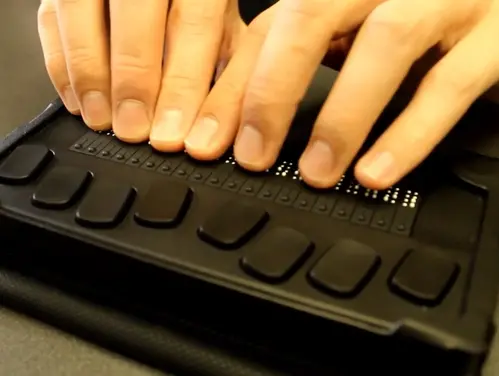- By Mary Stroka | The Center Square contributor
- May 18, 2023
(The Center Square) – The Iowa Library for the Blind and Print Disabled is introducing a program that will provide a variety of opportunities specifically designed to support parents of blind children.
While the individual offerings aren’t terribly different from what was offered in the past, it’s an effort to address a problem that’s been decades in the making, Iowa Department for the Blind Director Emily Wharton told The Center Square via email Thursday. The department wants to make it as easy as possible for parents to find and access the resources.
She said she believes the state is in a crisis regarding the education of blind and low-vision students. Since the 1950s, Iowa families have received rampant misinformation regarding the value of braille and braille literacy and the capabilities of blind and low-vision children in Iowa, she said.
“It breaks my heart to hear stories that mirror the experiences my parents had in the 1980s when I was in school in northwest Iowa,” she said. “My parents were told that my vision would be stable and I only needed to read print even though I could only read about 50 words a minute graduating from high school. Fortunately, I learned braille in my early 20s and was able to acquire the skills I needed to be successful in grad school, but I had so much unneeded head and neck pain, frustration, and low self-worth from years of struggling to ‘look like everyone else.’”
Students begin working with the department to transition from high school to post-secondary training or employment at age 14, but by this time, many lack basic literacy and math skills for jobs and other adult responsibilities, so they need to catch up, she said. Blind and low vision students can and should typically be on grade level with their non-blind or fully sighted peers. Blindness or low vision doesn’t need to be a barrier.
“We have worked with generations of blind Iowans to demonstrate that given the skills, self-confidence, and opportunity, blind and low vision people can live full, independent, and happy lives with fulfilling careers, families, hobbies, and community involvement,” she said. “Blind people are just like everyone else. We just need to do things a little differently at times. So often, we hear well-meaning educators say, ‘but your child is different because they…’ and will list A, B, or C, reason why less should be expected of that student. … As bizarre and terrible as it may sound, I am actually thankful that the depression and ADD I was experiencing in school was never diagnosed because I feel this would have been used as another excuse to expect even less of me.”
She said the department has heard from parents that they’re often confused about the resources available for their children’s success in school and life. The department wants parents, families and caregivers to have the information, tools, resources and training to help them make informed choices that maximize the literacy, confidence, and self-worth of their blind and low vision children. Staff also want to answer questions, give support, make connections and dispel misinformation to help families feel less isolated, frustrated, or scared for their blind or low vision child’s future.
The parent toolbox program combines a monthly email newsletter, virtual meetups and a subscription box, a notice said. The newsletter informs parents about agency events, activities and guides. The meetups are an opportunity for parents to hear tips and learn more about events from Iowa Department for the Blind staff and guest speakers. Parents can receive a quarterly subscription box with fun, helpful items.
Wharton said the new program doesn’t currently involve new funding, but that might change, based on parents’ needs, to support the creation, distribution, or iteration of programs and materials. The department has typically received permission from the Iowa Commission for the Blind to use donated funds for this purpose.
“[We] are very passionate about doing everything we can to make things better for this generation and those who come after,” she said.
